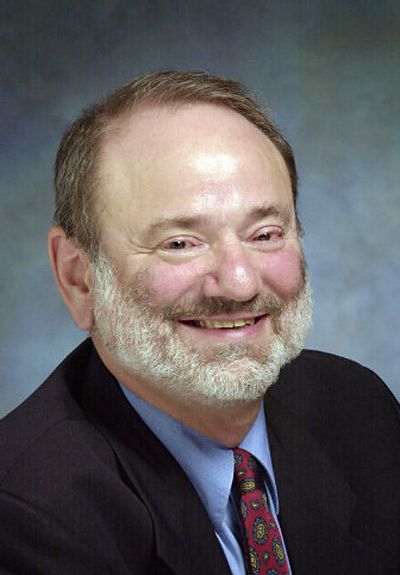In passing

David Shaw, 62, leading media critic
Los Angeles David Shaw, a Pulitzer Prize-winning Los Angeles Times writer who set new standards for media criticism with his hard-hitting examinations of the American press – including his own newspaper – died Monday evening. He was 62.
Shaw died at Cedars-Sinai Medical Center in Los Angeles of complications from a brain tumor that was discovered in late May, said his wife, Lucy.
“David believed in journalistic independence, and he definitely practiced it,” said John S. Carroll, editor of the Times. “As a critic, he was fearless in exposing the shortcomings of his own newspaper, his colleagues and his profession. His findings weren’t always popular, but they earned him a national reputation for insight and integrity.”
Since 2002, Shaw had been writing about two of his passions, food and wine, for the paper’s weekly Food section. He also continued to reflect on the media in a column that appeared Sundays.
But for most of his 37 years at the Times, Shaw used his energies to dissect trends and issues in the print and electronic media.
Among Shaw’s targets were movie criticism, best-seller lists, editorial cartooning, the use and abuse of political polls, the perceived influence of editorial endorsements in politics, coverage of the abortion issue, restaurant criticism, the Pulitzer Prize selection process, coverage of the pope and obituary writing.
“He had real clout in the craft,” said Jim Naughton, former president of the Poynter Institute for Media Studies and former executive editor of the Philadelphia Inquirer. “If the White House criticized your work, you looked for the political motive. If David Shaw criticized your work, you looked for ways to improve your work.”
Jay Hammond, 83, former Alaska governor
Juneau, Alaska Jay Hammond, a rugged bush pilot and hunting guide who served two terms as Alaska’s governor and helped create the oil-royalty fund that dispenses annual dividend checks to nearly everyone in the state, died Tuesday. He was 83.
Hammond died of natural causes at his home at Lake Clark, about 200 miles west of Anchorage, state troopers said.
Troopers were told of Hammond’s death by the National Park Service, said Alaska State Trooper spokesman Greg Wilkinson. Hammond’s remote home is near Lake Clark National Park and Preserve, the nearest government agency in the area.
Hammond, a Republican who was both a conservative and a conservationist, was governor from 1975 to 1982, during which oil began flowing through the Alaska pipeline.
During his time in office, Alaska’s broad-based tourism industry was born, fishery stocks were revived and the Alaska Permanent Fund was created.
The fund pays nearly every man, woman and child in Alaska a yearly share of the state’s oil wealth. Last year, the payout was $919 a person.
Hammond’s style combined self-deprecating humor and folksy plainspokenness. To the outside world, the bearded and barrel-chested governor looked every bit the typical rugged Alaskan.
Former Lt. Gov. Fran Ulmer, a Democrat who worked for Hammond for six years, said the governor would frequently call in his staff and commissioners to kick around ideas.
“He was a good listener and he wanted to do what was right, and not the first thing that came to his head,” Ulmer said. “Jay was a very honorable man with high standards of principle and morality.”
George Duggins, 61, Vietnam vets leader
George C. Duggins, the first black president of Vietnam Veterans of America Inc., has died. He was 61.
Duggins died Monday in Chesapeake, Va., of non-Hodgkins lymphoma, said Thomas H. Corey, the group’s current president. Corey said the disease was caused by Duggins’ exposure to the toxic herbicide Agent Orange during two tours of duty in Vietnam.
Active in Vietnam Veterans since 1985, Duggins served as president from 1997 to 2001, after stints as vice president, on the board of directors and as national chairman of several committees.
He appeared before Congress as head of the organization to seek improved health care for veterans and oppose spending cuts for smoking-related illnesses, noting: “The military did much more than tolerate smoking among its ranks – it irrefutably encouraged and subsidized smoking.”
Duggins worked to alleviate homelessness among veterans and to recruit more blacks into the organization’s predominantly white membership. At the time of his first election in 1997, membership was 99 percent white.